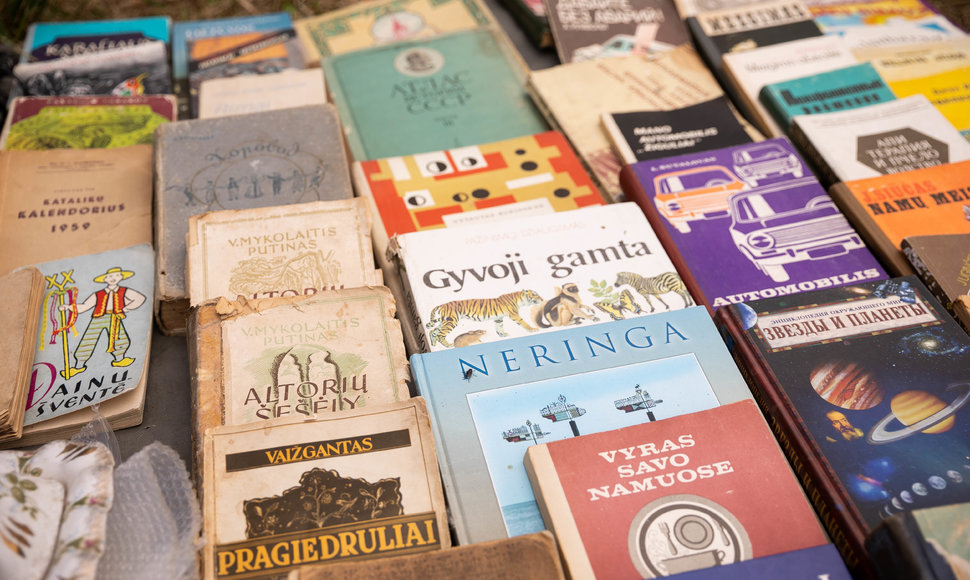Regular client-sellers already sell enough books every month to earn several hundred euros, while other reader-buyers can purchase their desired books at affordable prices.
Readers can earn
Today, 94% more customers are buying second-hand books, indicating that the demand for used books has doubled. Currently, there are up to 10,000 books in the second-hand book category. “The number indicates how many unpurchased books there are at the moment, but every day, new ones are added and, respectively, sold. We aim to become the number one seller of second-hand books on the market within a few years. In pursuit of this goal, we invested more than 48 thousand euros into the first stage,” Dovydas Pauliukonis, the head of Knygos.lt shared.
The second-hand book platform is user friendly. According to D. Pauliukonis, more control has been offered to client-sellers: “Clients will now oversee the entire book sales process from step one – presenting the book, indicating its state, price and sending it to the warehouse. Meanwhile, we will present the information in detail, what is happening to the client’s books – whether they have arrived at the warehouse, whether the quality and price are suitable, we will provide updates on the progress of the sale – when the book was purchased, sent out to the buyer when the money will be transferred.”
After the sale, the client will be able to choose what they would like to do with their earnings – convert it into Book Euros – a virtual currency that can be used to pay for purchases – or have the earnings transferred to their bank account.
D. Pauliukonis reveals that the second stage of the second-hand book renewal will be launched in spring: “In the second stage, sellers will be able to send books directly to the client. In other words, the platform will function as a second-hand book marketplace, and the buyer will be able to decide whether they will deal with shipping the books or if they will leave it to us.” As a result, the service’s popularity is expected to grow, with at least 10% of regular clients beginning to trade in books in a few years.
Most popular – out-of-print books
Readers typically seek rare publications, old prints and act based on sustainability, so they do not purchase new books. “The most popular ones are fiction books, older classics prints, out-of-print books by popular authors. For example, the books of famous author Sandra Brown are immediately bought out as soon as they are offered. Culinary books are a similar case – if it was popular, the book is purchased very quickly upon being newly put on offer. Finally, we note that older books on knitting are also favoured,” D. Pauliukonis comments.
While newer books printed in recent years are prioritised, there are no restrictions on sales when it comes to the year the book is from. D. Pauliukonis explains that older books, nonetheless, are often less relevant, though they also do find their buyers.
The head of Knygos.lt notes that interest in foreign language books is on the rise, so books in English and Russian are also accepted. The overall trend has been an increase in foreign language readers.
Books can be shipped from across Lithuania
For client convenience, second-hand books can be sent by mail or by courier from across Lithuania, while the option will also remain to bring books to a warehouse in Kaunas. “We handle all the warehousing, shipping and financial operations. The second-hand bookseller can be reassured that their books will reach the buyer, and the buyer can be certain that they will receive the book. If the buyer does not find the book suitable, they can make use of the return service, and we will hand off the book to another person,” D. Pauliukonis explains.
Clients will also be able to use the Knygos.lt database to find most of the books released in Lithuanian. As such, in most cases, book sales will be facilitated and will save time when it comes to taking book photos and preparing descriptions – the system will assign this automatically. Then, the seller’s task will be to indicate the price and the state of the book.
D. Pauliukonis emphasises that they will examine the book’s quality and will guarantee that the client will receive their book on time and specifically the one they chose because they are not dependent on a private bookseller: “While the person making the sale does indicate the state a book is in when they sell it, an extra review is performed based on strict standards and, if we see that the seller indicated an incorrect quality assessment – we update it based on our guidelines.”
The monitoring will allow ensuring that buyers of second-hand books will receive the books in their indicated state. Thus, as well as reading the books, buyers will be able to give them to friends who live sustainably. Every one of us has read, gifted, disliked, and space-consuming books – the platform will provide such books with a chance at a second life.














